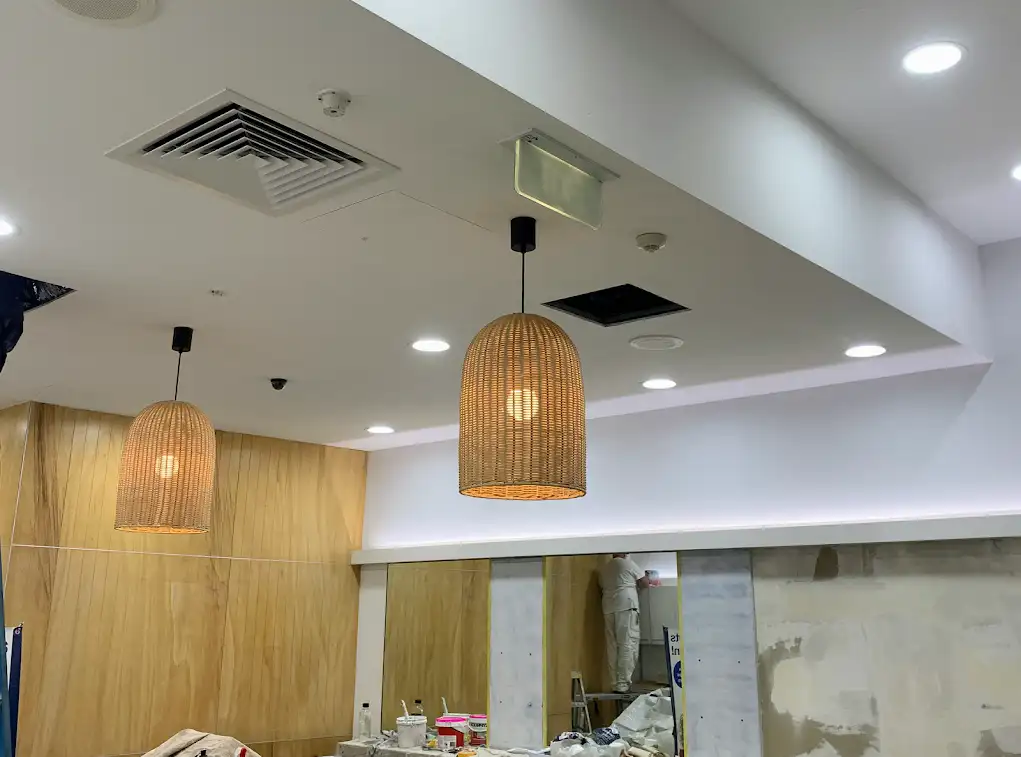
27 Jun How Do You Know If Your House Needs Rewiring

Flickering lights. Buzzing outlets. That faint burning smell near the socket.
They’re easy to overlook until it’s too late.
Rewiring your home might seem like a big task, but delaying it puts you at risk of fire, costly damage, and serious shocks. At MCH Electrical, we help homeowners across the Gold Coast stay ahead of these hidden dangers with safe, compliant, and long-lasting wiring solutions.
Let’s break down the clear signs that your home may need rewiring and why acting early is the smart move.
Recognising the Signs Your House Needs Rewiring
1. Flickering, Dimming, or Inconsistent Lighting
- Do your lights flicker when you switch on the kettle?
- Does the ceiling fan change speeds on its own?
- Do bulbs burn out faster than expected?
These aren’t just electrical quirks; they’re symptoms of an overworked system.
Worn-out wiring often struggles to handle the load from modern appliances, leading to inconsistent power. Many homeowners only discover the problem after dealing with frequent outages or power surges.
If your lights are acting like they’re in a nightclub and you’re replacing bulbs constantly, it’s time to have your wiring assessed.
2. Issues With Electrical Outlets and Switches
- Buzzing or sizzling sounds from outlets.
- Discoloured, scorched, or warm outlet plates.
These are clear indicators of underlying electrical faults, such as cracked insulation or loose connections. Over time, these issues can escalate into dangerous fire hazards.
We’ve helped many clients who ignored a buzzing sound, only to discover frayed wires melting behind the walls. If you notice anything unusual at your outlets or switches, it’s best to call a licensed electrician before things go from bad to worse.
3. Burning Smells or Heat Near Electrical Points
- A persistent burning or “warm” smell near power points.
- Switches or outlets that feel hot to the touch.
- Melting insulation smells with no visible source.
These are urgent red flags.
You may not see anything wrong externally, but behind your walls, scorched or smouldering wires could be silently posing a serious threat. Even if your fuse box appears fine, the wiring behind your plaster may be overheating dangerously.
If it ever smells like something’s burning, but you can’t find where, don’t ignore it. Call a professional electrician immediately.
4. Circuit Breaker or Fuse Problems
- Do your breakers trip regularly, especially when using big appliances?
- Still using porcelain fuses or an old-style switchboard?
- Hearing humming or buzzing sounds from your fuse box?
Frequent tripping means your system is overloaded or deteriorating. This is especially common in older homes that weren’t designed for high-consumption devices like dishwashers, dryers, or electric vehicles.
If your switchboard looks like it belongs in a museum or was installed before your first TV, you may be overdue for an electrical upgrade.
5. Living in an Older Home (30+ years)
- Homes built before the 1980s often contain rubber-sheathed or aluminium wiring.
- These materials have been phased out due to safety risks.
- Wiring that old typically doesn’t meet modern safety standards.
If your home hasn’t had a full electrical upgrade in 30+ years, chances are the insulation is brittle, cracked, or breaking down. You may not notice until something shorts or sparks.
Think of rewiring as upgrading your home’s nervous system. It keeps everything working smoother and safer, with less risk of failure.
6. Overuse of Extension Cords or Power Boards
- Constantly running extension cords between rooms?
- Not enough outlets to support daily devices?
- Outlets sparking or struggling under pressure?
These are signs that your current system can’t handle today’s demand.
Older homes weren’t designed for smart tech, chargers, and high-wattage appliances. If you’re running out of sockets and relying on extension leads, your wiring may be overloaded and underperforming.
7. Visual Clues: Wear and Tear
- Crumbling or cracked insulation on visible wiring.
- Dusty, aged switchboards still running the house.
- Two-prong outlets instead of grounded, three-prong ones.
We often find deteriorated wiring in roof cavities, behind switchboards, or even inside light fixtures. These signs aren’t just cosmetic; they’re warnings that your system is past its safe lifespan.
Risks of Delaying Rewiring
Fire Hazards
- Old wiring is like dry tinder in your walls; one spark is all it takes.
- We’ve investigated fires caused by hidden faults and melting wires.
- Poor grounding and deteriorated cables are often the cause.
Rewiring isn’t just about convenience. It’s a critical safety investment. Electrical fires often start silently, and by the time you notice, the damage is already done.
Personal Safety Risks
- Shocks from switches can escalate to serious injury or electrocution.
- Melting wires release toxic smoke, especially while you sleep.
- Outdated systems lack RCD safety switches that protect from electric faults.
Your family’s health is worth far more than the cost of rewiring. Don’t gamble on outdated infrastructure.
Higher Power Bills and Insurance Issues
- Inefficient wiring increases resistance, wasting energy.
- Your power bills go up, even when usage stays the same.
- Insurance claims can be denied if fire is caused by non-compliant wiring.
Rewiring helps lower bills, reduce energy waste, and may even qualify your home for lower insurance premiums or boost its resale value.
What’s Involved in a Rewiring Job?
At MCH Electrical, here’s how we take care of it:
- Complete inspection and honest, upfront quote.
- Replacement of old, unsafe wiring with modern materials.
- Installation of RCDs, circuit breakers, and upgraded switchboards.
- Room-by-room rewiring as needed, with minimal disruption.
- Clean, efficient, and professional work. We leave no mess behind.
Every job is fully compliant with the AS/NZS 3000:2018 standards. We also handle permits and provide compliance certificates, so you’re covered legally and structurally.
Why Rewiring Is a Smart Upgrade
- Increases home safety.
- Supports modern appliances and devices.
- Reduces power outages and risk of electrical faults.
- Adds to property value and saleability.
- Keeps you in line with Queensland electrical standards.
Think of it as future-proofing your home, safe, efficient, and ready for whatever’s plugged in next.
Your House Is Speaking, Are You Listening?
Small problems like flickers, zaps, or warm switches may seem harmless, but they’re your home’s cry for help.
Don’t wait for smoke or sparks to take action.
At MCH Electrical, we specialise in rewiring Gold Coast homes for long-term safety and peace of mind. Whether you’re upgrading an older house or building new, our licensed team is ready to help.







Sorry, the comment form is closed at this time.